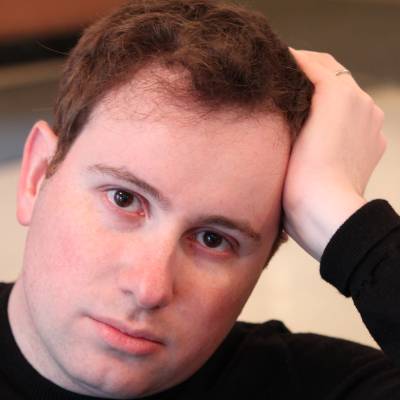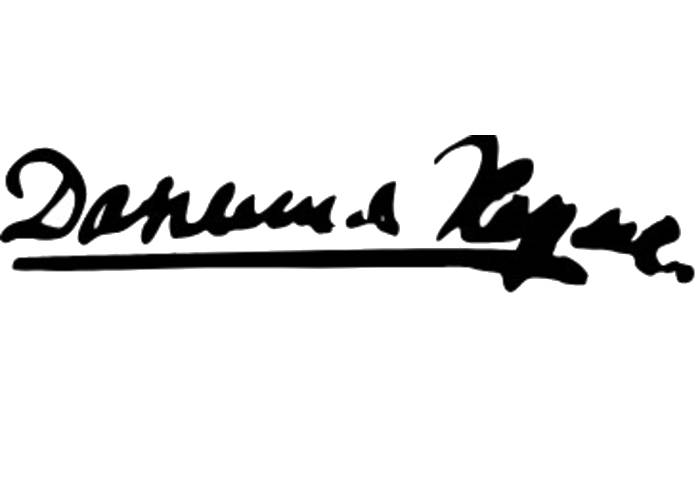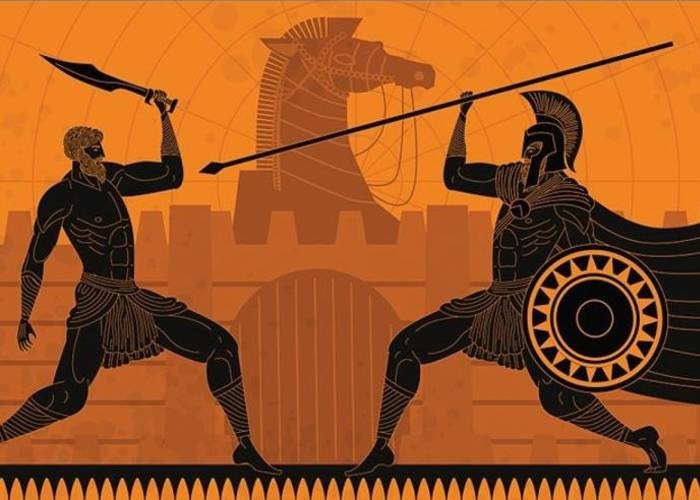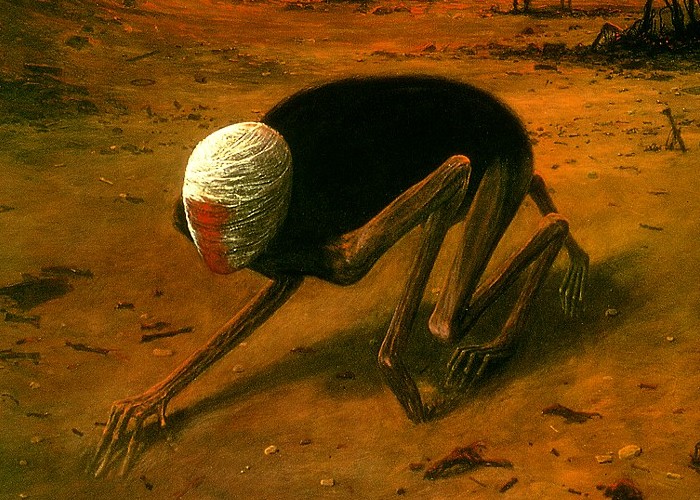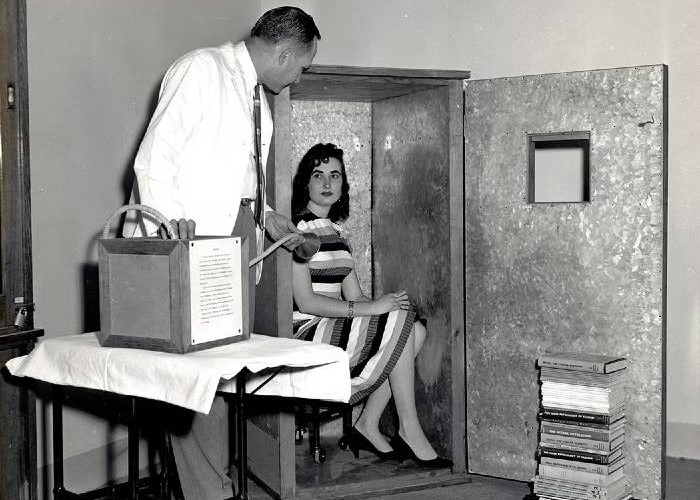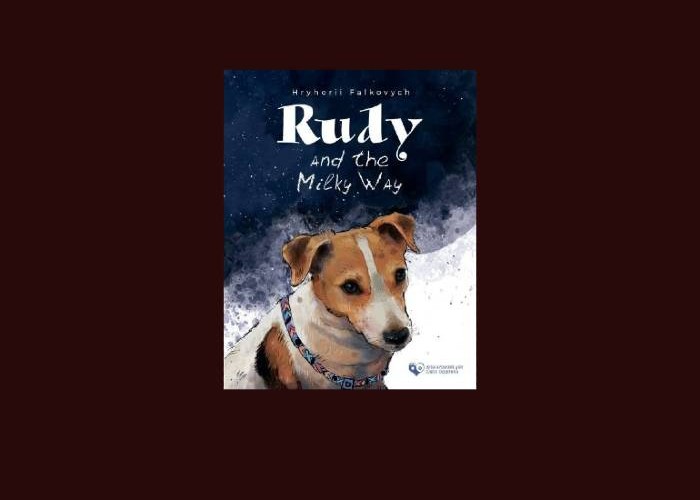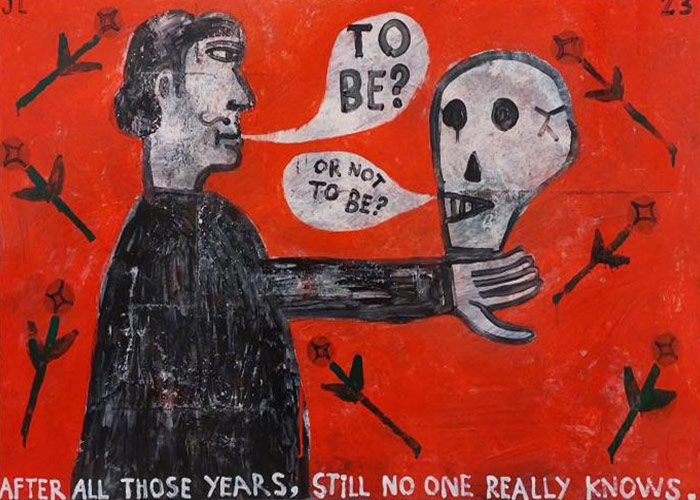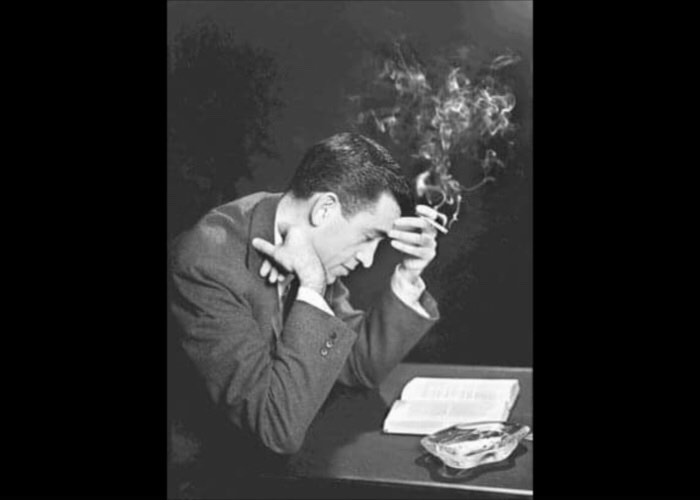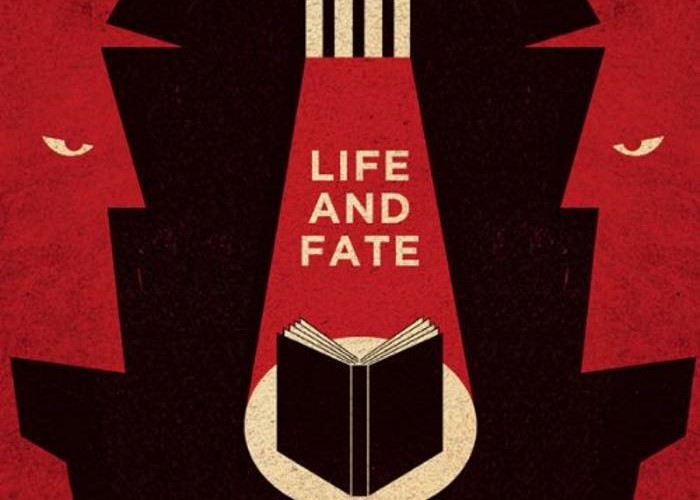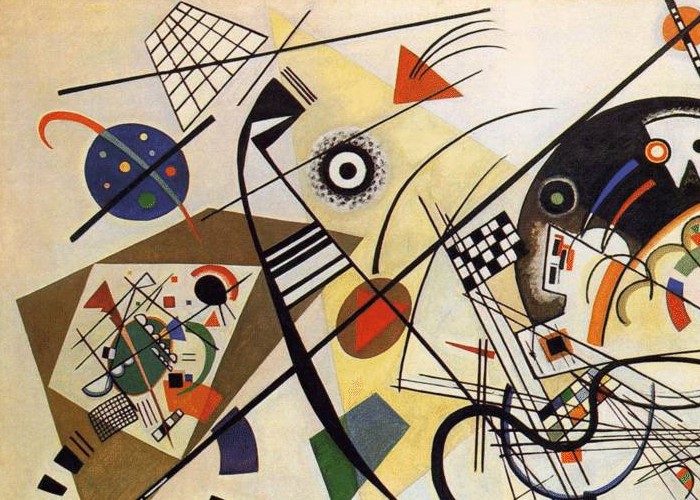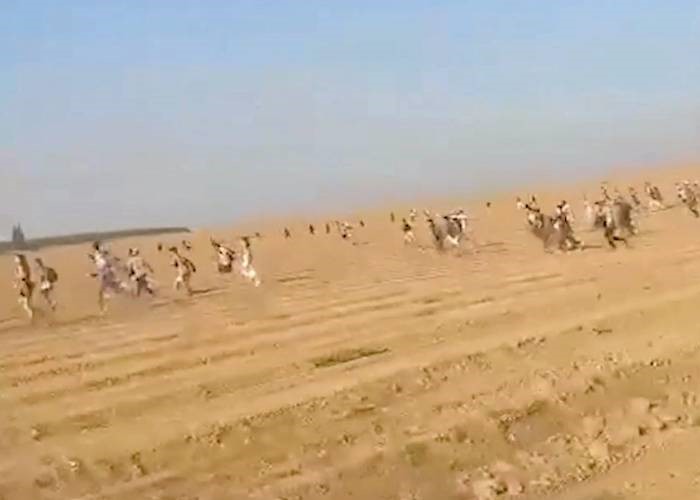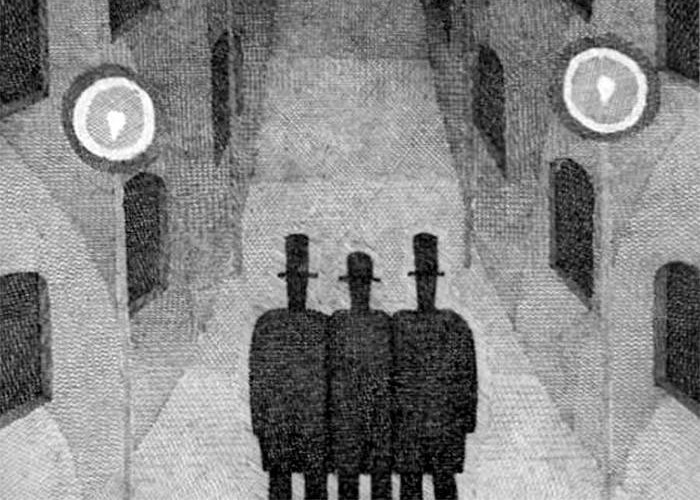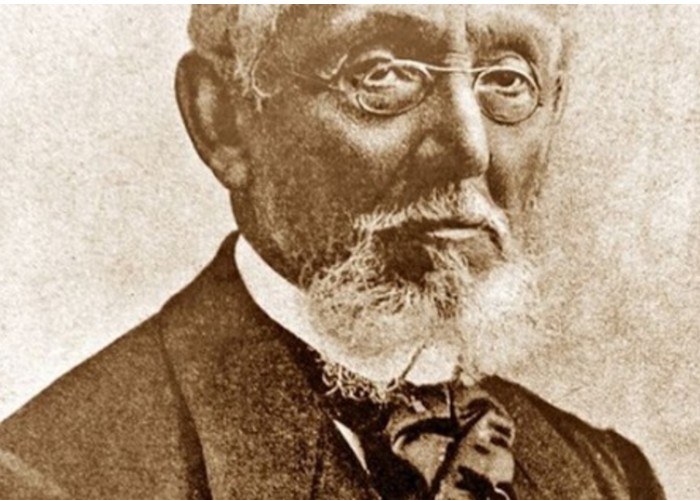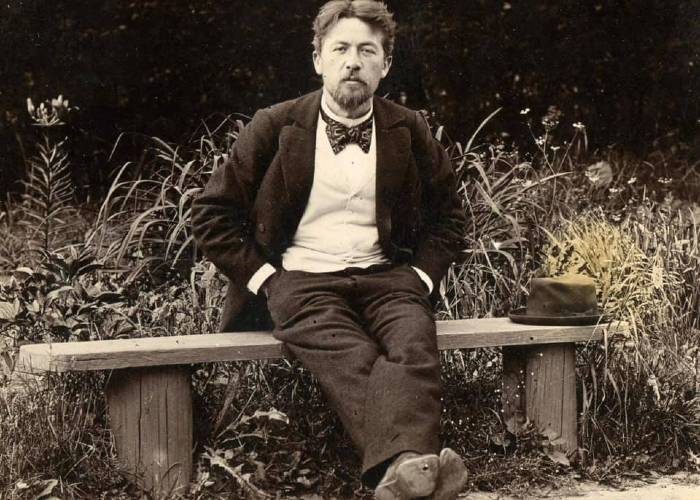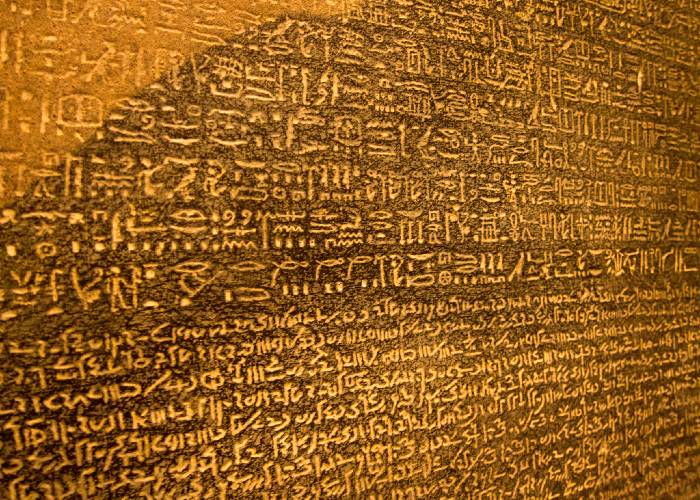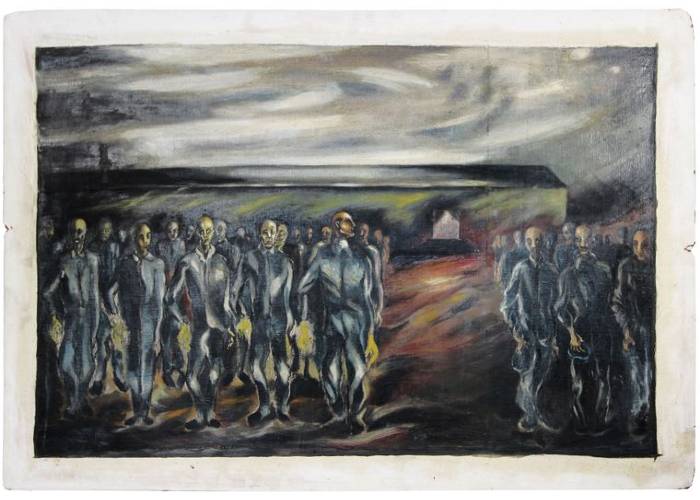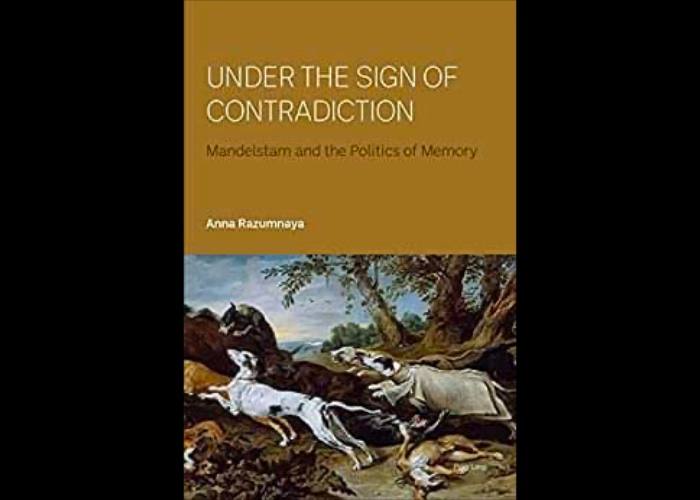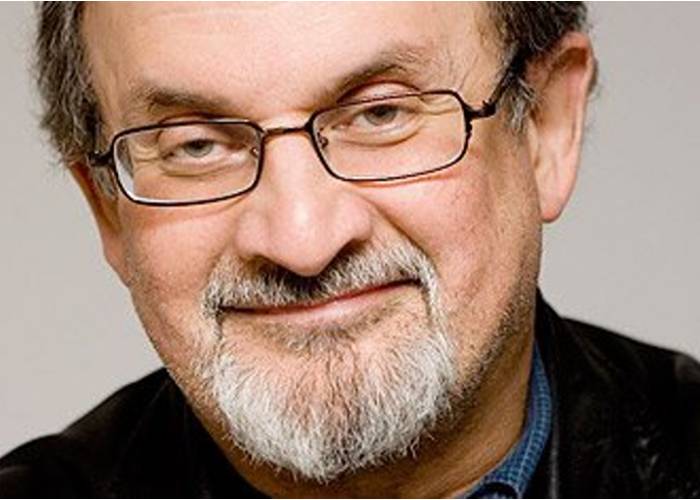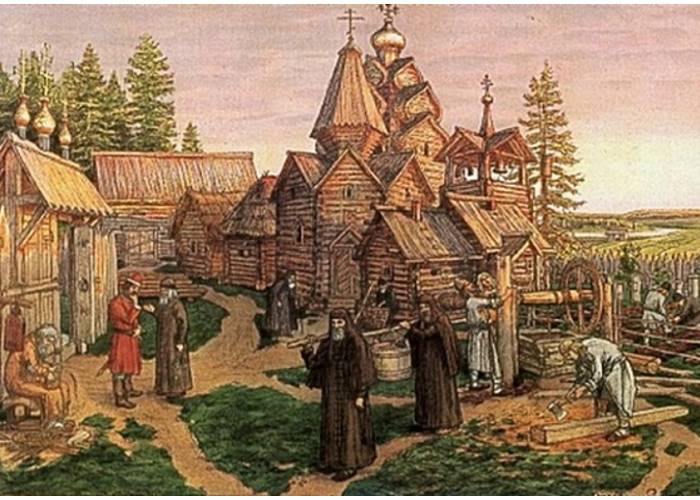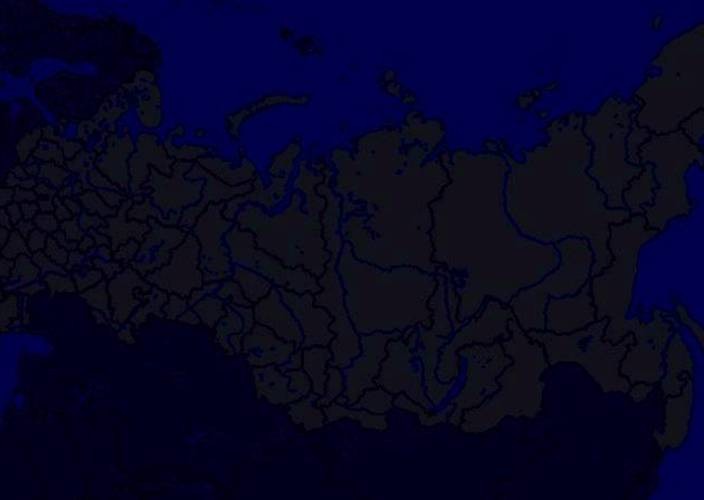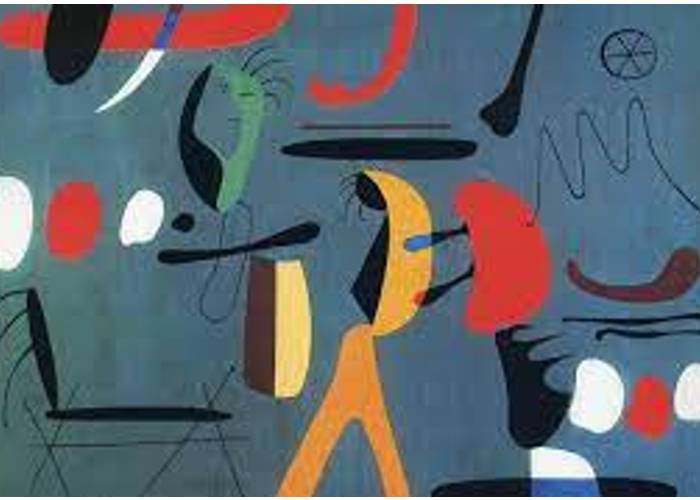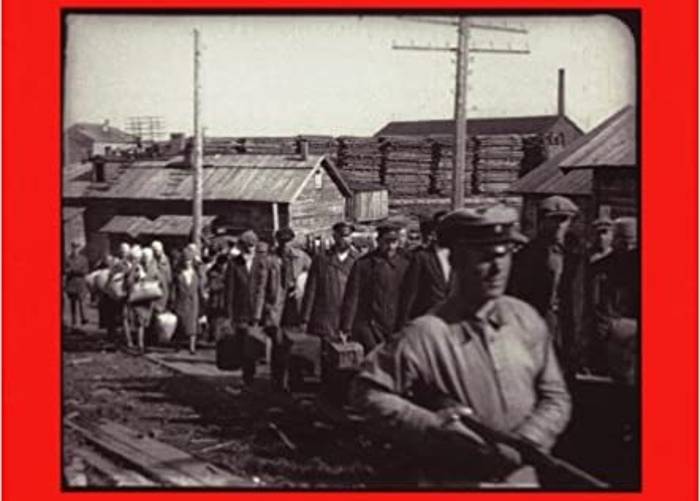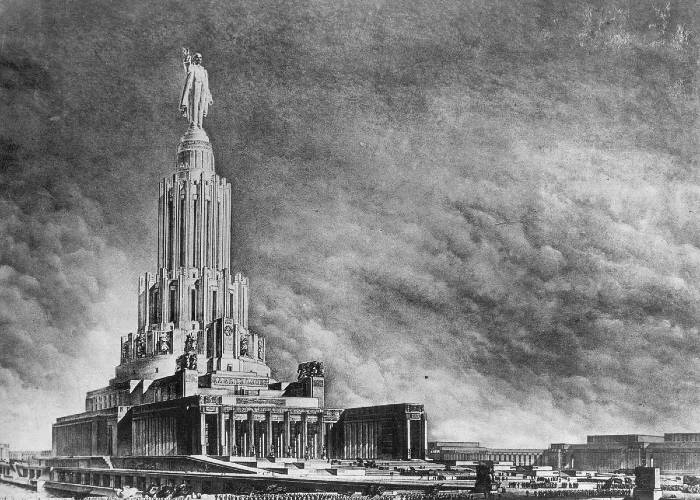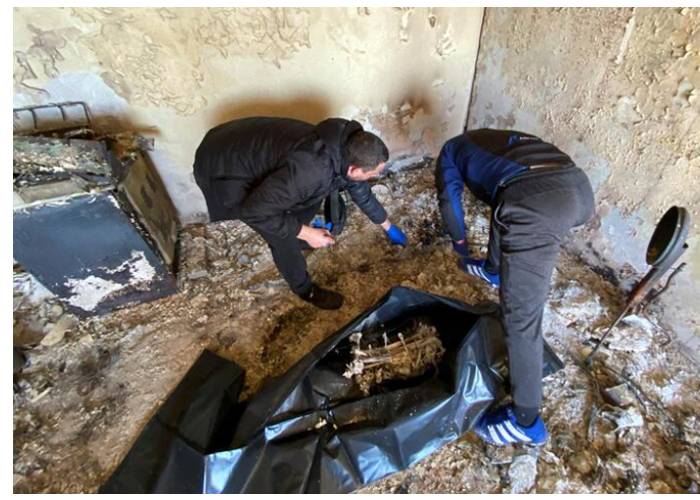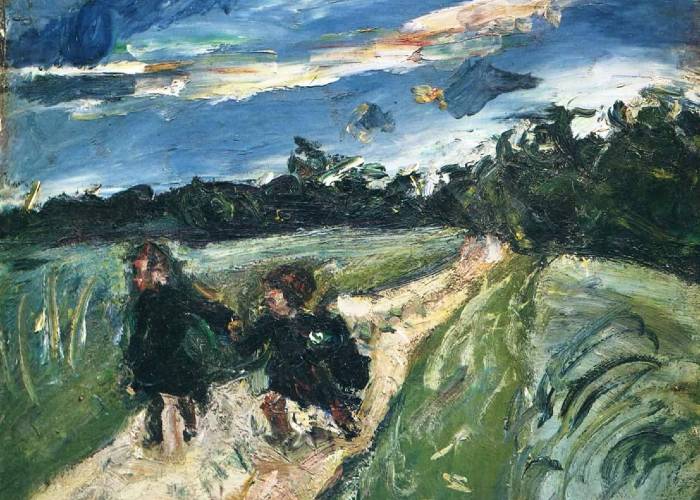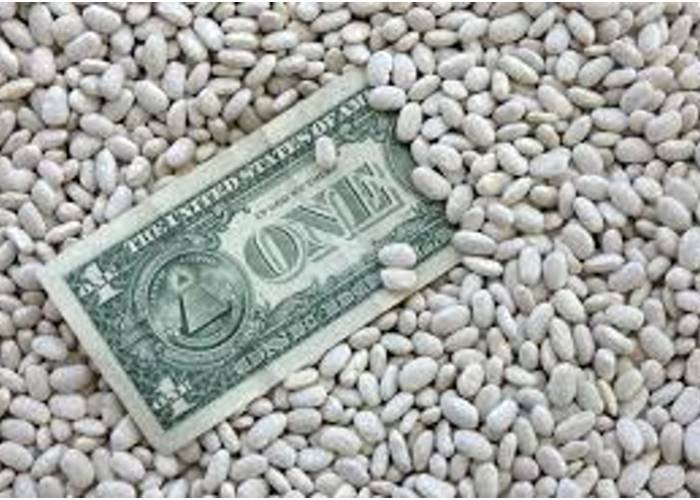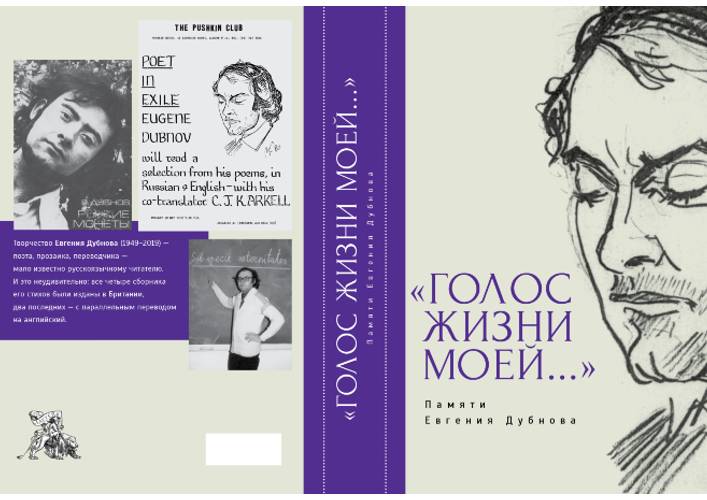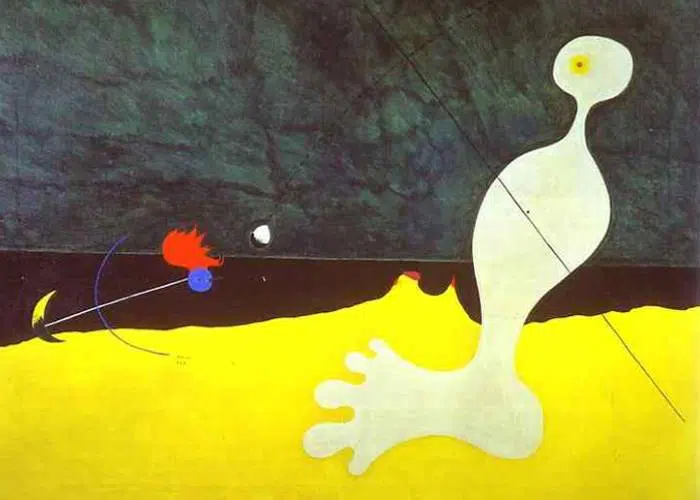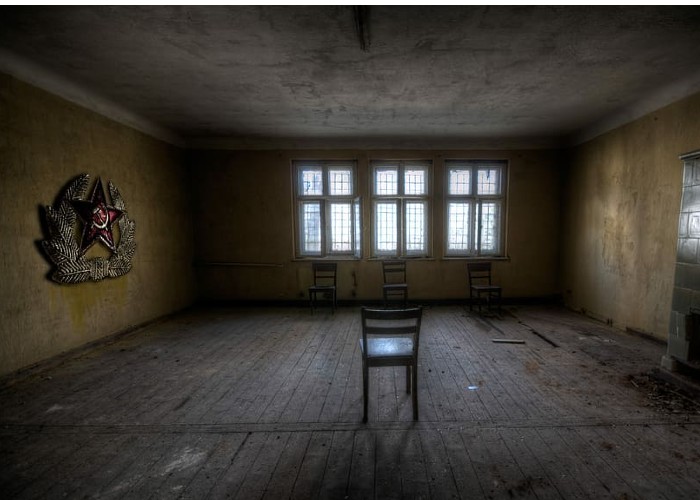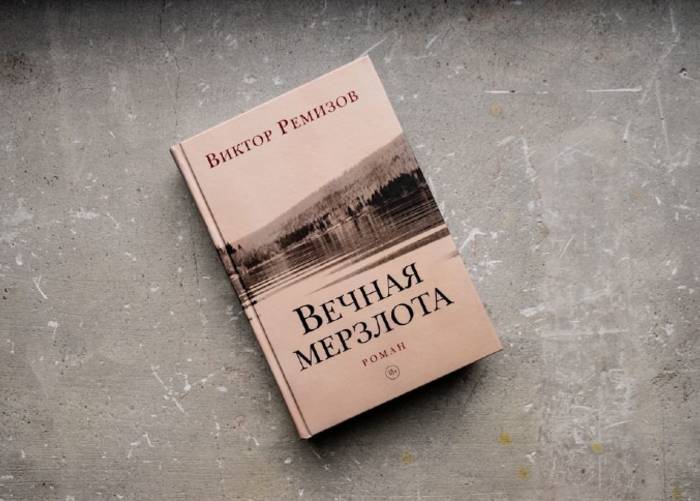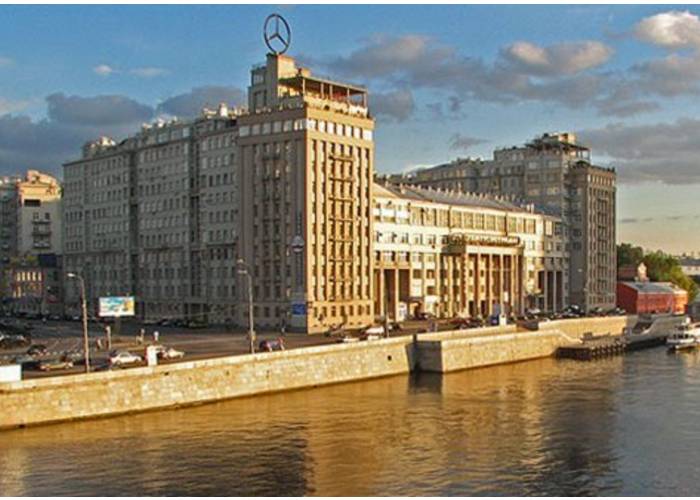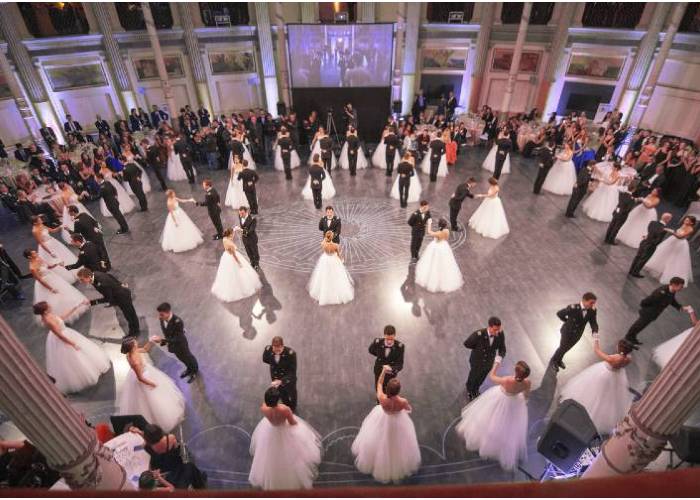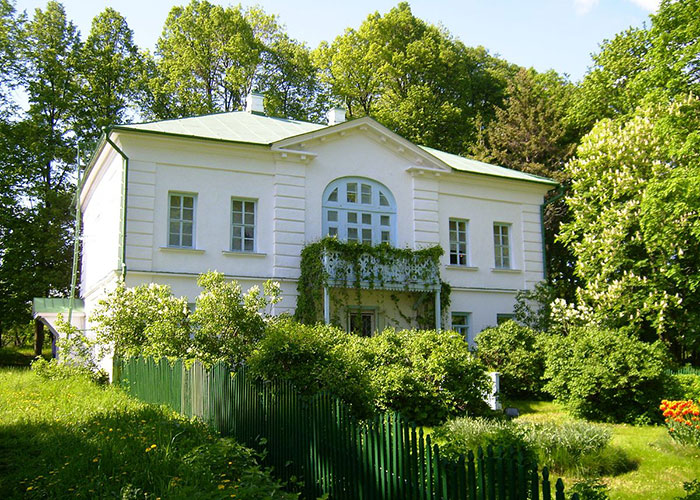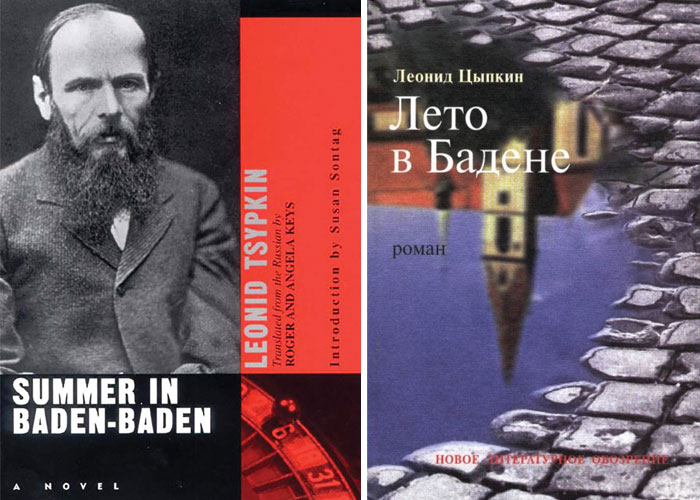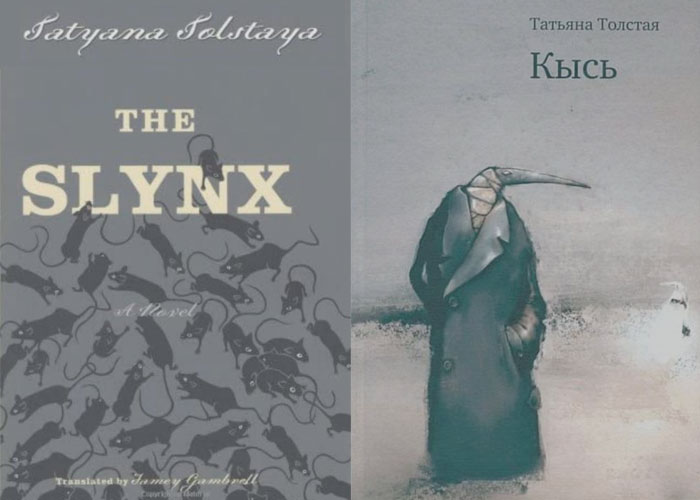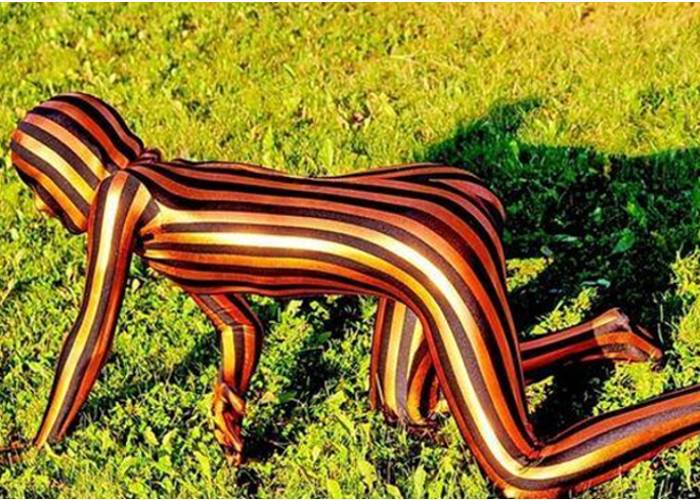Benign or Malignant? The May 9th Victory Day holiday may appear as benign, respected, even sacred, one that is celebrated by millions in Russia and abroad, as they mark the 1945 defeat of Nazi Germany. For those in constant search of parameters that separate good from evil, this holiday may pass for an excellent opportunity to align oneself with the forces of good. From a practical standpoint, in Russia, it is associated with a week-long break that allows many to go on a pre-summer vacation. The May 9th holiday is an inadvertent transition from the thawing spring to an unmistakable summer.
It may very well appear benign.
In actuality, when history books are written about the present Russian-Ukrainian war, the May 9th Victory Day may very well become one of this war’s root causes.
In actuality, there is plenty of malignancy.
A Pet Project: Over the last two decades, Vladimir Putin turned Victory Day into his own pet project, channeling the concept of national grief toward a force of patriotism that, in his opinion, would find few detractors. He was mostly right: even the anti-Putin intelligentsia could not come up with many credible arguments to discredit this holiday.
The only other leader who sought to “own” the Victory Day was Leonid Brezhnev who in 1965 resurrected its celebration on a militarized scale. Before that, there were two decades of ambivalence, given the level of total horror among the Soviet WWII survivors who at that time were still young, often handicapped physically, and most definitely maimed psychologically.
For Brezhnev, there was a fervent desire to amplify his own role during that war and to receive the very many medals and honors that eluded him in the 1940s.
For Putin, the task was to marry the WWII victory to the glory of the Soviet Union. There were, after all, only two great holidays that defined the Soviet era: the November 7th celebration of the 1917 Bolshevik coup, aka the Great October Revolution, and the May 9th Victory Day. With the Bolshevik holiday seemingly out of the picture, – Mr. Putin has time and again demonstrated his disdain for Lenin and his associates, – it was the Victory Day that was left for public patriotic consumption.
For the lack of better mathematics, Putin’s pet project implied that the glory of the Soviet Union equaled the accomplishments of the Great Patriotic War.
Problems Begin with Nomenclature: Soviet history books were clever in labeling the Second World War as the Great Patriotic War. In doing so, they established steady temporal boundaries, since the official Soviet start date for the military conflict was June 22, 1941, nearly twenty-two months after the actual WWII began for the rest of the world. Indeed, on June 22 Nazi Germany invaded Soviet Russia, as its airplanes bombed Kiev (sounds familiar?) and other cities. In the eyes of the rest of the world, Hitler’s Operation Barbarossa merely marked the launch of a new offensive in a war that dominated much of the European continent.
In Russia, with its deeply rooted nationalistic fervor, it is always about charting its own path. A different name; a different start date; even a different end date. After all, V-E Day was established on May 8th everywhere around the world, except in the Soviet Union.
By proclaiming the conflict as the Great Patriotic War with its own start date, Joseph Stalin shrewdly shielded the Soviet Union from anything his regime committed before June 22, 1941. Soviet barbaric accomplishments, meanwhile, encompassed Poland, Bessarabia, and Finland, with countless purges and massacres, among which there was a famously notorious attempt in the spring of 1940 to “demilitarize” (sounds familiar?) Poland by killing thousands of Polish military officers in the Katyn forest. Around the same time, the Soviet Union failed in its disastrous military campaign against Finland, where the resistance of a small neighboring country was grossly underestimated (yes, once again: all too familiar).
While the “Great Patriotic War” nomenclature deliberately underlines the nobility of its pursuit and the defensive purpose of the conflict, it has another realistic raison d’etre: the need to explain eight-figure losses, which at approximately 26-27 million Soviet lives have meaningfully exceeded those of the opposing side.
During pre-Gorbachev times, the actual numbers were concealed from the public, but they came to the forefront of public discourse in Putin’s Russia. The new Russia assumed no responsibility for the mistakes or crimes of the Soviet state. Gone was the uncomfortable need to explain or justify those staggering losses. Rather, it was now all about the devil’s arithmetic: the human cost was so overwhelming that the war had to be intrinsically just. There was no other way. Those who questioned the just cause were disrespecting the dead.
This deeply erroneous assumption happens to be the core building block of Victory Day.
Ideology Reborn and Defended: By lamenting the collapse of the Soviet Union as the greatest geopolitical catastrophe of the twentieth century, Vladimir Putin sought to refocus the old ideology in the new limelight. In doing so, he was certainly practical. He concentrated on what made sense and what did not. The communist system was brain dead, but some elements of the heart were still pumping.
Putin brought back the old anthem: it appeared as a convenient resurrection, the music itself was quite powerful, and the octogenarian poet just had to tweak the words a bit. He then built the propaganda state almost entirely around television: after all, his subjects watch television much more than they read books. There was no need to be as ideologically rigid as the Soviet government was. Are there some literary dissenters? Let them be! Any noise around banning their books would bring greater harm than the consumption of their texts.
Overall, not too much could inhibit the Putin-sponsored newly born ideological fervor around one single holiday: the Victory Day of May 9th.
Consequently, Vladimir Putin and his propagandists skillfully demonstrated Russia’s victory over the Nazis as the single most important event in the country’s history and the core source of the country’s patriotism. In 2005, Russia resurrected the Georgian ribbon – a decoration in orange and black dating back to the times of Catherine the Great – as the mark of the Patriotic War celebration. Festive marches and demonstrations became more populous than ever in Moscow and other cities, though the dearth of actual WWII veterans – the vast majority was dead or homebound – posed an obvious challenge. Putin’s regime solved this demographic problem by instituting the so-called Immortal Regiments, which had descendants marching with portraits of their loved ones who fought in the war. This initiative, alas, gained popularity even in the United States where, in their biggest to date bonding experience with the Putin regime, Russian emigres populated the streets of Boston, New York, and Washington, D.C.
Finally, Putin criminalized much of the free speech around the Great Patriotic War. It was now increasingly difficult to publicly ostracize the 1939 Nazi-Soviet Nonaggression Pact, one that paved the way for Hitler and Stalin to start the Second World War and slice large swaths of Eastern Europe. Furthermore, it was now illegal to juxtapose the two regimes as equally murderous.
Ideology as Nostalgia: In theory, ideology is always focused on the future, with the past itself largely marginal. Such was the focus of the Third Reich; such was the utopia of Marxism-Leninism. Vladimir Putin transformed the Victory Day holiday into a nostalgia-abundant event – one in which Russians openly expressed wistfulness for the Red Army’s (alleged) glory in the 1940s, as well as for the Soviet dominance that ensued in Eastern Europe and other parts of the world.
As tanks and other heavy machinery made their way through the vastness of the Red Square during the annual May 9th parades, there was an explicit “shall we repeat this?” question in the air. As celebrations unfolded via a multitude of concerts around the country, many answered this question in the affirmative. Obsession, after all, breeds repetition.
Putin inevitably felt a burning longing for a victorious war of his own.
He felt wistful for a new postwar outcome, in which he, along with the FDR and Churchill of our times, sits down in some new Yalta and divides up the geographical spheres of influence.
Putin’s ideology was rooted in nostalgia.
In a League of His Own: Like Chaplin’s Adenoid Hynkel, Vladimir Putin must have figuratively danced with a large inflatable globe, albeit the bursting came sooner than could have been cinematographically expected.
These days there are so many comparisons of Putin to Hitler that the analogy itself lost much of its flavor. While similarities between monsters of this magnitude are certainly inevitable, – mainly because there is only a handful of mechanisms they can employ to deceive and annihilate, – Putin resides in a league of his own.
After all, he is the only leader in recent memory who may have been driven by a not-so-innocent holiday to start a not-so-innocent war.
What we have seen in recent years is the Russian leader so pious in his celebration of the Nazi defeat that he became nostalgic for reincarnating the bloodshed.
He became so enamored with what he perceived as the war of liberation that he sought to create such a war from scratch.
He concocted a denazification conflict in a land where no Nazis existed.
He was done playing with toy soldiers and tanks: it was time for the real thing.
He was wistful for war, for its pain and glory.
Hence, came February 24th.
What’s next for the Victory Day holiday? There are three ways to answer this question.
First, for as long as Putin and his entourage are in power, the May 9 celebration will become all the more ominous and grotesque. In addition to the imagery from the 1940s, this holiday will now feature stories from the modern era, carefully scripted by modern propagandists.
Second, on a non-state level, i.e., within individual families and households, perhaps the time has come to remind oneself that the horrors of war cannot be marked by annual celebrations, even if one’s grandparents fought on the side of the lesser evil. The Soviet troops are guilty of committing atrocities of unimaginable magnitude in Eastern Europe, making the liberation argument illogical at best.
Third, in an effort of concluding on an optimistic note, once the Putin regime ceases to exist and several decades pass to heal the wounds – perhaps Victory Day would undergo a metamorphosis from militaristic festivities to solemn commemoration, akin to that of Yom Hashoah in Israel. I could almost picture a two-minute siren throughout all eleven time zones of the Russian Federation, with people stopping their daily activities during two minutes of silent remembrance.
The very last scenario, alas, is but a dream, since “the very substance of the ambitious is merely the shadow of a dream”, at least according to Guildenstern.
April-May 2022
